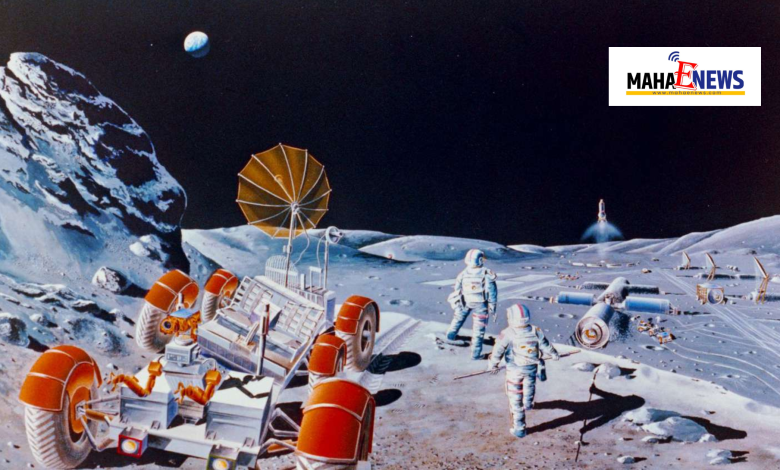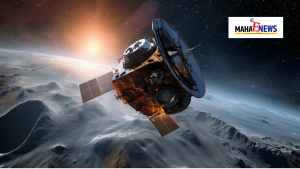The Future of Space Exploration: New Horizons for Human Space Travel
Mars: The Final Frontier for Human Exploration .

NASA : Space exploration has come a long way since the first human spaceflight in 1961, and the future promises even more exciting developments. Human space travel is evolving with technological advances, scientific discoveries, and new missions that aim to push the boundaries of what is possible in space. Here’s an overview of the future of space exploration and the new horizons for human space travel:
1. Moon Missions and Lunar Bases
NASA’s Artemis program is one of the most ambitious efforts for returning humans to the Moon. The program aims to land the first woman and the next man on the Moon by the mid-2020s. One of the main goals is to establish a sustainable presence on the Moon, which will serve as a testing ground for future deep space exploration. A permanent lunar base could help us understand how to live and work in space for extended periods and provide a stepping stone for missions to Mars.
2. Mars Exploration
Mars has long been the primary target for human space exploration. Private companies like SpaceX, led by Elon Musk, are developing rockets like the Starship that aim to make human colonization of Mars a reality. Musk’s vision of sending the first crewed mission to Mars in the 2020s or early 2030s is an exciting prospect, although the challenges are immense, such as radiation exposure, life support systems, and the logistics of transporting people and supplies.
NASA is also planning its own Mars Sample Return mission in collaboration with the European Space Agency (ESA), aiming to bring Martian soil and rock samples back to Earth for detailed analysis. This could play a crucial role in determining whether life ever existed on the Red Planet.
3. Commercial Space Travel
Commercial companies are set to revolutionize human space travel. SpaceX, Blue Origin, and Virgin Galactic are already paving the way for private space tourism, with planned flights for ordinary people, including astronauts, scientists, and tourists. Blue Origin’s New Shepard and Virgin Galactic’s SpaceShipTwo are designed for suborbital flights, giving passengers a brief experience of weightlessness and a view of Earth from space.
SpaceX, on the other hand, aims for orbital missions and even trips around the Moon. The company’s Starship is designed for deep space missions, and once operational, it could offer transport not only to the Moon and Mars but also to other destinations in the solar system.
4. Deep Space Exploration
Exploring beyond the Moon and Mars is another exciting frontier. NASA’s James Webb Space Telescope, launching in 2021, is designed to look deeper into the universe and examine exoplanets, searching for signs of habitable environments. Scientists are particularly interested in moons like Jupiter’s Europa and Saturn’s Enceladus, where subsurface oceans may harbor life.
The Europa Clipper mission, scheduled for launch in the 2020s, will explore Europa’s icy surface and its potential to support life, while NASA’s Dragonfly mission to Titan (Saturn’s largest moon) will explore the atmosphere and surface, offering new insights into the potential for life in extreme environments.
5. Technological Advancements
Technological innovations will play a pivotal role in shaping the future of human space exploration:
- Rocket advancements: Reusable rockets like SpaceX’s Falcon 9 and Falcon Heavy have already changed the economics of space travel by dramatically reducing launch costs. The development of Starship, a fully reusable spacecraft, could make long-term space travel and even Mars colonization more feasible.
- Life support and sustainability: The creation of sustainable habitats in space, including advanced life support systems, will be crucial for long-duration missions. This includes innovations in recycling air and water, food production in space, and radiation protection.
- AI and Robotics: AI-powered systems and advanced robotics will help astronauts navigate harsh environments, perform scientific experiments, and conduct maintenance on spacecraft, ensuring the success of long-term missions.
- Fusion propulsion: Future propulsion systems like nuclear fusion could provide faster travel to distant destinations, cutting down travel times in deep space significantly.
6. Space Habitats and Colonization
The vision of permanent human settlements beyond Earth is no longer a distant dream. Innovations in space habitats, such as O’Neill cylinders (large space stations) or bio-domes for self-sustaining ecosystems, are being considered as potential solutions for long-term human habitation in space. These habitats could be used for research, mining, or as part of a broader plan for colonizing the Moon or Mars.
7. Ethical and Legal Considerations
As humanity ventures further into space, the ethical and legal implications will become more significant. Issues like space debris management, the commercialization of space resources, the rights of astronauts, and the potential for extraterrestrial life will need to be addressed. International space law and cooperation will play an important role in ensuring the peaceful use of space.
8. Space for Everyone
The future of space exploration is not only about government-led missions or private companies. Space tourism, educational programs, and collaborations with international space agencies are opening the doors for a broader audience to experience and contribute to space exploration. The democratization of space could allow millions of people to engage with space in ways that were previously unimaginable.
Conclusion
The future of space exploration is incredibly promising, with many exciting developments on the horizon. From returning to the Moon, reaching Mars, and establishing permanent space colonies to uncovering the mysteries of the universe and expanding human presence across the cosmos, the possibilities seem endless. As technology advances and global collaboration increases, space may soon become a place where humanity not only explores but also thrives.










